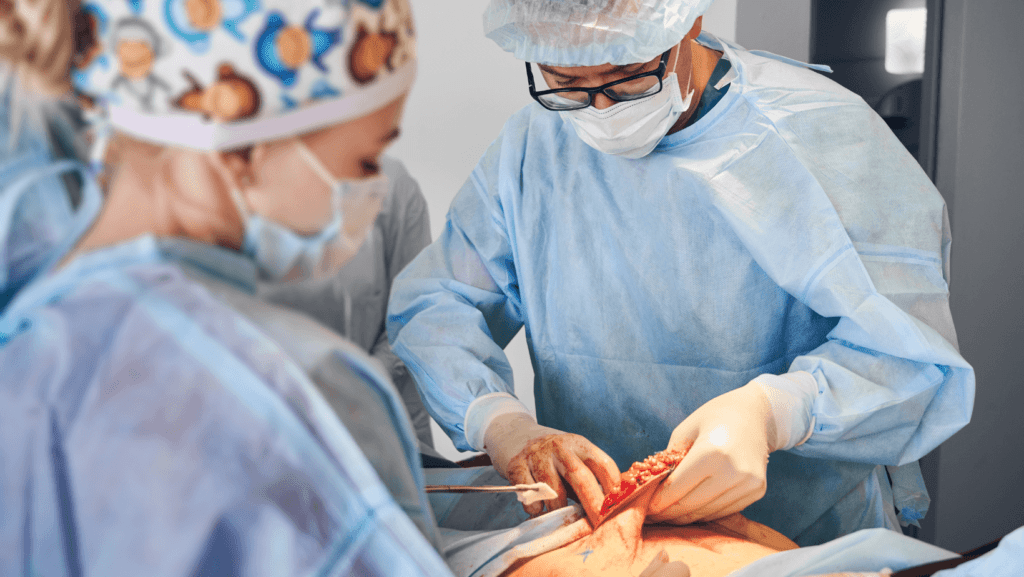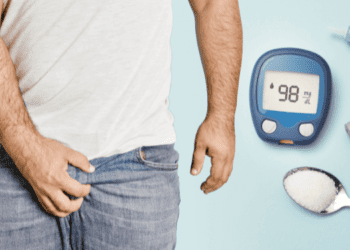Are you considering a tummy tuck? You aren’t alone – it continues to be one of the most popular plastic surgery procedures. But what happens if something goes wrong? If you’ve recently had a tummy tuck, here are 8 signs of a bad tummy tuck mentioned in this post indicating you may need medical attention. Keep reading to discover the signs of a bad tummy tuck and why you should care.
What is a Tummy Tuck?
A tummy tuck is a surgery that reduces excess skin and fat on the midsection. It is most often recommended for people with children or who are significantly overweight. A tummy tuck can also be recommended to people with concerns about their waistline, drooping lower abdominal muscles, or ptosis (eyelid drop due to excessive weight).
Several factors can lead to a decision to have a tummy tuck. These include:
- Excessive weight: Overweight individuals typically have more body fat in the abdomen than their regular-weight counterparts. This increased percentage of body fat makes it more difficult for the skin to stretch evenly, which results in stretched-out skin and loose pockets of fatty tissue.
- Children or post-pregnancy belly: Children’s bodies undergo rapid growth during gestation and after birth, which may cause them to develop rolls of excess skin known as panniers or mounds on their bellies. Pregnant women also accumulate extra fat around the abdomen due to hormonal changes.
- Waistline Concerns: With increasing numbers of Americans being considered obese, there has been an increase in patients seeking procedures such as tummy tucks intended to reduce waistline appearance concerns even if they do not have clinically significant obesity problems. Almost one-third (32%) of all abdominoplasties performed in 2015 were for cosmetic purposes only, according to preliminary data from The American Society for Aesthetic Plastic Surgery (ASAPS).
Warning Signs after Tummy Tuck

After a successful tummy tuck, many patients are eager to return home and resume their everyday lives. However, if you notice any of the following signs after a tummy tuck, please seek medical attention:
- Bleeding or bruising after surgery
- Unusual pain or discomfort in the lower abdomen area
- Frequent nausea or vomiting
- Throwing up yellow or green material (grossly colored drainage from the stomach)
- Persistent drowsiness or dizziness
Abnormal Swelling
After a tummy tuck, there may be some signs of swelling or discomfort. These can be difficult to notice at first but should be monitored by your surgeon. Some common symptoms include:
- Swelling in the middle section of the stomach (belly button area)
- Bluish skin coloration around the navel or upper bellybutton
- Frustration when trying to eat or drink due to pain in the abdomen
- Burping and regurgitation caused by fluid accumulation in the intestines
Unusual Pain or Discomfort

If you’re experiencing any of the following signs after a tummy tuck, it’s advisable to seek professional help:
- Severe stomach pain or discomfort that lasts for more than a few minutes and is unrelieved by medication or rest
- Persistent indigestion, bloating, constipation, or diarrhea that does not respond to changes in diet or lifestyle
- Swelling in the abdomen that does not go away with rest or treatment with over-the-counter medications
- Sudden onset of fatigue and unexplained weight gain
Persistent Bleeding or Drainage
Persistent bleeding or drainage after a tummy tuck may indicate that the surgery was not performed correctly. If the bleeding or drainage is severe, persistent, or accompanied by other signs of infection, the patient should seek medical attention.
Unusual Drainage from Surgical Incision Site
Some patients may experience unusual skin discoloration, drainage from surgical incision sites, or changes in bowel or bladder habits after surgery. If any of the following signs persist for more than a week and you are not feeling well, contact your doctor: black staining around the surgical site; redness, pain, swelling, or pus near the incision; severe abdominal bloating or swelling; nausea or vomiting; difficulty breathing.
Abnormal Tissue Formation at Surrounding Areas
You should contact your doctor if you have no unusual skin changes after surgery, such as abnormal tissue formation or discoloration. Symptoms can indicate a problem with the procedure itself and may require further investigation.
Unexpected Scarring
Many individuals who have had a tummy tuck experience some degree of scarring. However, not all scarring is terrible, and some can be helpful. Here are eight signs that you may need to see a doctor about your post-tummy tuck scar:
- It’s itchy or uncomfortable. Scar tissue is dry and hypersensitive to stimulation, so if it’s causing you significant discomfort or itchiness, it’s time for a consultation with your surgeon.
- The scars change color or shape over time. Scarring will typically change in color over time as the skin heals and new collagen strands form; however, if the changes are too drastic or unexpected, it may indicate that you should seek medical attention.
- The scars have begun to recede but remain visible through tight or underarm clothing. This sign suggests that despite reasonable healing efforts by the body, there may still be residual issues that require further care from your physician.
- There is excessive swelling at one or more of the associated surgery sites. Node following abdominal surgery is a joint and typically resolves within several weeks; however, if swelling persists for more than 72 hours after surgery or increases significantly beyond pre-operative levels, then professional attention should be sought.
- You experience unusual bowel habits changes, including recurring constipation, diarrhea, heavy bleeding, hard stools without gas, etc.
- While uncommonly seen following abdominoplasty procedures performed by experienced surgeons (generally speaking), rare cases of post-surgical appendicitis can occur.
- Persistent pain at one location corresponding to where the incision was made (commonly referred to as “post-op syndromes”) should always lead to seeking professional assistance.
- Heavier periods since surgery
Unusual Itching or Burning Sensations
After a tummy tuck, some patients experience unusual itching or burning sensations. This is usually temporary and goes away on its own, but if it persists or worsens, it may be a sign to see a doctor.
Changes in Nerve Sensation
Nerve damage after a tummy tuck is one of the most common complications. Symptoms can include:
- Pain or discomfort around the surgery
- Difficulty moving the affected area
- Swelling or tenderness around the surgery site
- Numbness or tingling around the surgery
- Loss of sensation in the affected area
- Persistent fever
- Severe pain when attempting to move the affected area
- Extreme fatigue
Signs of Poor Healing
Nerve sensations may worsen following a tummy tuck. These changes can include intense pain, numbness, burning, or tingling around surgery. If you experience any of these symptoms, consult your doctor immediately.
Unusual Appearance of the Tummy Area
After surgery, many patients experience changes in nerve sensation in the abdominal area. This can manifest as a peculiar tingling or numbness, which may persist for several weeks or even months after surgery. In some cases, this may be accompanied by an unusual appearance of the tummy area, with redness or swelling. If you experience any of these signs and symptoms after undergoing a tummy tuck, it is advisable to seek medical attention.
Other possible signs of a bad tummy tuck include:
- Swelling or redness around the surgery site
- Nausea or vomiting
- Feeling like you can’t eat or drink
- Swollen legs or feet
- Difficulty breathing
- Yellowing of the skin or eyes
- Persistent dizziness or lightheadedness
Contact your doctor if these symptoms persist for more than a few days.
Symptoms of Infection After Tummy Tuck

Some of the most common symptoms of infection include
- Fever
- Chills
- A general feeling of being unwell
If you experience any of these symptoms, you must see your doctor as soon as possible.
Signs of Infection or Rejection
One of the most common complications after a tummy tuck is infection. Infection can occur from the surgical site, from the patient’s bacteria, or from another patient. In some cases, the infection may go away on its own, but in others, it may require antibiotics or surgery to remove the infection.
Other complications after a tummy tuck include rejection of the new skin. This can happen when the new skin doesn’t grow properly or becomes infected. Rejection can lead to pain and swelling; sometimes, it may require additional surgery to fix the problem.
Unusual Symptoms After Surgery
Unusual after-surgery symptoms can indicate an infection or another complication. These may include abdominal pain, nausea, vomiting, fever, chills, diarrhea or constipation, clay-colored stools, foul-smelling discharge from the rectum or anus, swelling in the neck and throat area due to drainage from the surgical site(s), dizziness, or lightheadedness. If you experience any of these symptoms after your tummy tuck surgery – even if they go away with treatment alone – contact your surgeon for a follow-up.
Although most people recover quickly from a tummy tuck, some patients experience lingering pain and discomfort. For example, those with large scars on their abdomen may feel pain daily when they move their abdominal muscles. Additionally, those who have had a significant operation in the past are at an increased risk for developing postoperative pain syndrome (POP). Therefore, please seek medical attention if you experience significant pain or discomfort after your tummy tuck.
Warning Signs of Serious Complications After a Tummy Tuck
As with most surgeries, there is a risk of infection after a tummy tuck. However, the infection can also signify that something more serious is going on. Here are some warning signs you should pay close attention to:
- Persistent pain or tenderness in the area around the surgery site
- Significant swelling or redness beyond the normal postoperative period
- Signs of foreign body expulsion (e.g., fecal occult blood, black vomit)
- Fever higher than 38°C (97°F)
- Serious health concerns such as heart disease and cancer.
When to Seek Medical Attention After a Bad Tummy Tuck

If you experience any of the following signs after having a bad tummy tuck, it is essential to seek medical attention:
- Persistent pain after surgery that does not improve with rest or medication
- Swelling or excessive drainage from the incision
- fever above 101 degrees Fahrenheit for more than three days post-op
- Severe pain in the lower stomach (abdominal) area that lasts for more than two weeks
Tips for Choosing a Qualified Surgeon
When choosing a surgeon for a tummy tuck, it is essential to ensure that the surgeon has experience performing these procedures. Additionally, check out their credentials and reviews to ensure they are qualified to perform your surgery. Finally, ask questions before booking your procedure, so you are fully informed about potential risks and benefits.
Wrapping Up
It is important to be aware of the signs of a bad tummy tuck and take any of these symptoms seriously. If you experience any unusual upper abdominal pain, swelling, bleeding, scarring, or discoloration after a tummy tuck procedure, contact your surgeon immediately for instructions on addressing the issue. Taking prompt action can help reduce the risk of further damage and unwanted side effects from this surgical procedure. Be sure to choose an experienced board-certified plastic surgeon who performs tummy tucks for optimal results and reduced risks associated with postoperative complications.



















